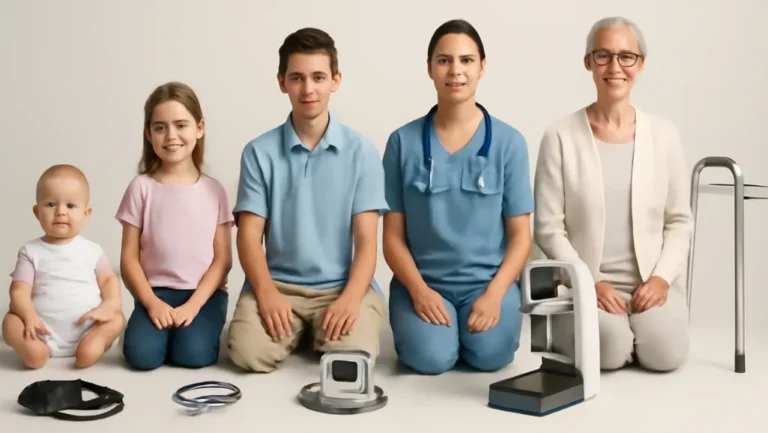What is an allergy?
An allergy is a condition in which the immune system responds to foreign substances that are typically not harmful to the body. These foreign substances are known as allergens. They can be foods, drugs, pollen, pets.
Allergies causes
Any foreign substance that comes in contact with the body can be the reason for allergies. These substances are pollen, dust mites, latex, animal dander, mold. Now you must be thinking about what all symptoms these substances can cause. Continue reading to know more.
Allergies types symptoms
People can be allergic to a wide variety of foreign substances. Let’s get to know the common allergy types and their symptoms-
Dust mites- These are tiny organisms that live in fibers of household items like carpet bedsheets, pillows. Dust mites can grow in humid conditions.
Dust mites allergies symptoms
- Sneezing
- Itchy eyes
- Watering nose
- Feeling stuffy
Foods- This kind of allergy occurs when the body develops a specific antibody to a particular food. The analytic reaction takes place within a few minutes of eating the food. The symptoms can get severe.
Foods allergies symptoms
- Itching
- Nausea, vomiting
- Diarrhea
- Swelling of mouth
- Hives
Latex- This type is one of the skin allergies types. People suffer from latex allergy after repeated contact with latex. A major source for this reaction is rubber gloves used in house cleaning or surgery.
Latex allergies symptoms
- Skin itching
- Skin rash and redness
- Hives
- Wheezing
- Eye tearing
Pollen- Hay infection is an allergic reaction to pollen. It causes swelling and inflammation in the nose and the conjunctiva of the eye.
Pollen allergies symptoms
- Sneezing
- Congestion
- Itching and watery nose, eyes, and mouth
Contact dermatitis- This is one of the face allergies types reaction. It is caused by food, poison ivy, or a detergent you touched. As several people touch their face a lot of times in a day, it’s not unusual to have itching near the eyes, nose, and mouth.
Contact dermatitis symptoms
- Itching on face
- Skin redness
- Hives
- Watery eye and nose
Allergies risk factors
Listed down below are some factors that can increase the risk of allergies-
- Family influences- If someone in the family has a history of asthma, the risk of developing allergies is significantly high in such individuals.
- Children- They are more prone to developing allergies because of limited immune system exposure.
- Allergies risk of asthma- Asthma is a chronic lung condition resulting in narrowing and inflammation of the airways. If a person has asthma he is more likely to get allergies.
- Existing allergic reaction- Individuals who already have one kind of allergy condition are more susceptible to reacting unfavorably to other allergens.
Allergy vs Covid
Allergies are not caused by viruses, like COVID-19. Seasonal allergies are immune system reactions to the exposure of pathogens. Allergies and Covid 19 share many common signs and symptoms, but let’s know the differences. Fever is a common symptom of COVID-19, on the other hand, fever is not seen in allergic patients. Nausea, vomiting, and diarrhea are sometimes seen in COVID-19 patients, but not as an allergy. Sneezing is a symptom of allergy and not of Covid 19. Also, patients with COVID-19 can have shortness of breath or breathing difficulty; whereas allergies don’t show such symptoms unless it’s asthma.
Allergy risk Covid
People with allergies are at risk for Covid. Allergies make things itch. The eyes, nose, and throat become irritated and make the patient feel sick. Such people should try not to scratch their eyes or nose and take their allergy medications daily. The symptoms can be coughing and itching. But if it gets severe like trouble in breathing or fever then seek medical assistance from Patna clinic.
Allergies treatment
- Wear a mask- It will prevent the allergens from entering your nose and then to the airways. The N95 mask available at the medicine store will block 90% of pollen and other allergens.
- Wash hands and face- Every time you walk into your home from outside, make sure you change your clothes, sanitize the things you got from outside, and take shower.
- Eat healthily- Researchers suggest that children who had lots of fruits, vegetables, and nuts in their diet had fewer allergy symptoms. A proper diet is good for overall health.
- Drink more often- If you are feeling stuffy from your allergic reaction, drink more fluids like water, juices. or warm fluids like soup, tea. By this method, you’ll get some relief.
- Avoid smoking cigarettes and drinking alcohol- This can worsen your stuffy nose, watery eyes, or itchiness. Avoid going to restaurants or clubs that can worsen your symptoms.
Allergies prevention
- Take medicine as prescribed by your physician.
- Keep a track of what you eat. This can be easy for the doctor to find the cause.
- Know what you can do during an allergic response.
- Stay away from your allergens
- Avoid taking stress
Why is GoodDeed clinic the best for your health checkups?
GoodDeed provides you with proper medical assistance in the clinic in Patna. We ensure you get high-quality services from a neurologist on a boring road and a gastroenterologist in boring road Patna, at the best price possible. GoodDeed has exceptionally qualified and experienced physician doctors in Patna boring road, who are trained in the USA and are practicing here in the clinic and diagnostic center of health checkups in Patna. You can simply fix an online appointment with doctors, and have a one-to-one conversation. We are also open for long-distance packages for families who stay abroad and their parents are in India. To get smooth and effective treatment, consult GoodDeed, a full body checkup clinic in Patna.
FAQs
What are the most common outdoor allergies types?
The most common outdoor allergens are pollen. There are few types of pollen allergies like grass pollen, tree pollen, weed pollen.
What is the relation between allergy and Covid vaccine?
Those who are managing allergies daily or have a history of severe allergies in the past. Such individuals have experienced allergic reactions after receiving the first shot of the COVID-19 vaccine. But experts suggest that even though there is a chance to have a condition called anaphylaxis (allergic reaction), it is less and the benefit of the Covid 19 vaccine is more. If you have any doubts or concerns regarding this get a health checkup in Patna.















